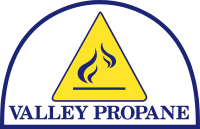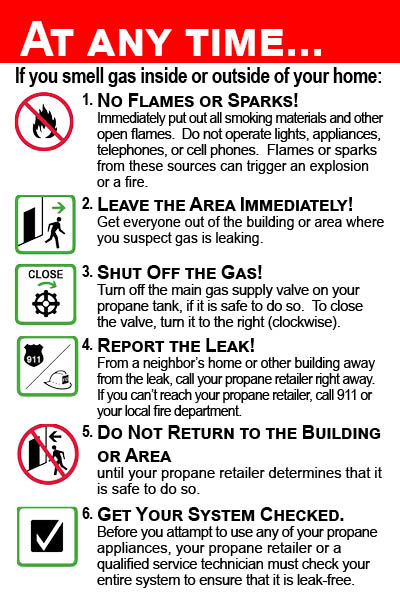Read and follow all the grill manufacturer’s instructions before turning on and lighting the grill. Keep the top open when lighting a propane grill, and don’t close it until you are sure the grill is lit. Turn off the burner control and close the cylinder valve. When a grill is not in use for extended periods of time, cover disconnected hose-end fittings with plastic bags or protective caps to keep them clean.
Properly transport and store gas cylinders. When refilling or replacing a propane cylinder, transport in a secure, upright (vertical) position in a well-ventilated area in your vehicle, and take it home immediately. Always use or store cylinders in a secure and upright position outdoors (not in a garage or shed).
The DO’s and DON’Ts of Propane Cylinder SafetyDo’s
- Follow the grill manufacturer’s instructions and keep written materials handy.
- If the igniter no longer works, replace it in accordance with the grill manufacturer’s instructions.
- Keep the top of the grill open until you are sure it is lit, even if you have an electronic ignition.
- Cover disconnected hose-end fittings with plastic bags or protective caps to keep a grill clean when it is not in use.
- Store propane cylinders outdoors in an upright (vertical) position.
- If you smell gas, and it is safe to do so, turn off the cylinder valve, turning it to the right (clockwise). If you are unable to turn off the valve, immediately leave the area
- and dial 911 or call your local fire department. Before you use the grill again, have a qualified service technician inspect your grill and cylinder.
- Consult a qualified service technician if you are having grill or propane cylinder problems.
DON’Ts
- Smoke while handling a propane cylinder.
- Use matches or lighters to check for propane leaks.
- Pour an accelerant such as lighter fluid or gasoline on the grill.
- Allow children to tamper with the cylinder or grill.
- Use, store, or transport propane cylinders near high temperatures (this includes storing spare cylinders near the grill).

